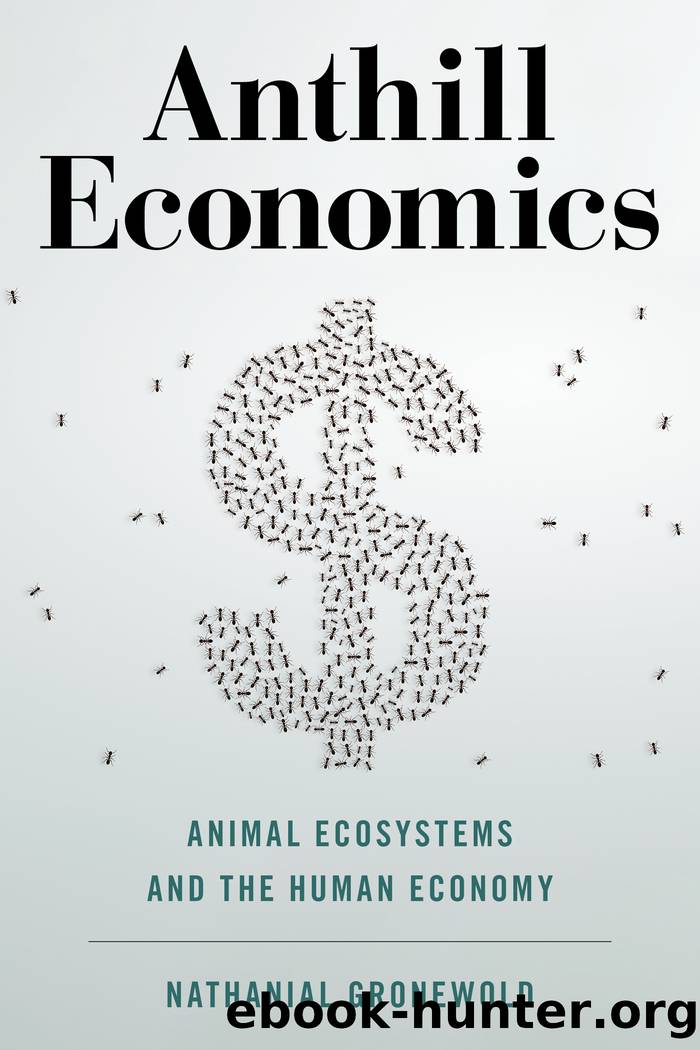Anthill Economics by Nathanial Gronewold

Author:Nathanial Gronewold
Language: eng
Format: epub
Tags: undefined
Publisher: undefined
Published: 2012-03-15T00:00:00+00:00
* * *
There have been rebellions against standard lines of economics research and inquiry before. A movement begun in France once called itself PAECON, an acronym for âpost-autistic economics.â The name was meant to indicate its followersâ disdain for an excessive reliance on econometric modeling and complex mathematics in pursuit of imaginary worlds that had little to do with everyday experience, practices commonly pursued in the halls of university economics departments everywhere. The movement has since changed its name to âreal-world economicsâ out of appropriate sensitivity to people with autism, and it regularly publishes the Real-World Economics Review, a journal dedicated to showcasing ideas that canât otherwise get published in the mainstream peer-reviewed economics journals. The most current issue as of this writing takes on modern monetary theory. Past authors have criticized the fetish for economic growth, free trade assumptions, and globalization. Other issues of this rogue economics journal have focused fire on the myriad ways in which economists ignore ecology and the enormous environmental damage ensuing from regular economic activities.
But these are economists taking on their better-published peers in an attempt to pull their discipline closer to an average personâs experience and needs. What Yakovenko is doing is fundamentally different. He is an outsider scientist, a theoretical physicist no less, attempting to draw the economics discipline closer to the natural world and to the fundamental laws of physics and nature. His is a compelling argument, one that he can back up with solid evidence and strong data. Yet the mainstream of the economics profession continues to ignore Yakovenkoâs research and its implications, just as it does the real-world economics movement.
Thomas Piketty doesnât mention Yakovenko and his colleaguesâ findings or theories anywhere in his lengthy book on inequality. Their compelling ideas are nowhere to be found in semiregular World Inequality Reports; nor are they discussed in the 2014 book on âsecular stagnationâ published by the Centre for Economic Policy Research in London. Iâve never come across their mention in any report by the United Nations Department of Economic and Social Affairs, a unit devoted to exploring the economic problems of the developing world. Yakovenko admits that even the economics department at his own employer, the University of Maryland, shuns his ideas and wonât invite him to participate in its seminars or public lecture circuit. His theories and models exist only in the dungeon beneath the ivory tower, quietly passed between like-minded thinkers and only allowed a brief moment in the sunlight via some obscure physics and econophysics journals before being banished below again by professional economists who insist that they know more about these subjects than the naturalists and hard scientists do.
Itâs ironic, really.
As mentioned earlier, economists are often accused of suffering from âphysics envy,â whereby they are criticized for their overreliance on overly complex mathematical models, creating worlds in their heads that donât exist in reality as they try desperately to see their discipline operate more along the lines of a natural science rather than a social one. And
Download
This site does not store any files on its server. We only index and link to content provided by other sites. Please contact the content providers to delete copyright contents if any and email us, we'll remove relevant links or contents immediately.
The Fifteen Biggest Lies about the Economy: And Everything Else the Right Doesn't Want You to Know about Taxes, Jobs, and Corporate America by Joshua Holland(1113)
The Economist (20210109) by calibre(920)
The World For Sale by Javier Blas(856)
Made in China by Anna Qu(847)
Philippines--Culture Smart! by Culture Smart!(703)
Mission Economy by Mariana Mazzucato(679)
Boom and bust a global history of financial bubbles by Quinn William Turner John(676)
Forex Trading All In One For Dummies by Mishra Mamta(658)
Big Money by Kenneth P. Vogel(649)
The Money Revolution by Anne Boden(644)
The Dictatorship of Woke Capital by Stephen R. Soukup(636)
The New Retirement Savings Time Bomb by Ed Slott(625)
Tax the Rich! by Morris Pearl(623)
Green Public Procurement under WTO Law by Rika Koch(621)
Cross Winds: Adventure and Entrepreneurship in the Russian Far East by Myers Steven(613)
The Inflation Myth and the Wonderful World of Deflation by Mark Mobius(606)
Fundamentals of Finance by Mustafa Akan Arman Teksin Tevfik(581)
European Yearbook of International Economic Law 2017 by Marc Bungenberg Markus Krajewski Christian Tams Jörg Philipp Terhechte & Andreas R. Ziegler(579)
The Great Demographic Reversal by Charles Goodhart & Manoj Pradhan(569)
